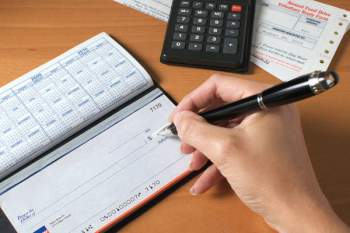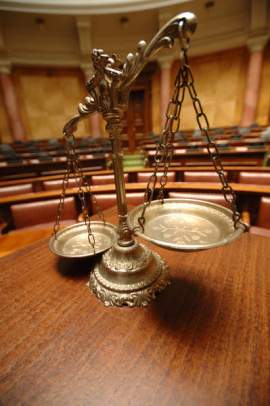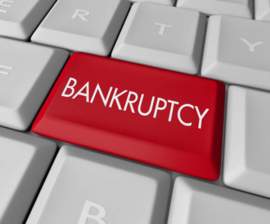
Bankruptcy Credit Repair: Short Guide

Related Forms
Schedule B - Personal Property
Schedule C - Property Claimed as Exempt
Schedule D - Creditors Holding Secured Claims
Schedule E - Creditors Holding Unsecured Priority Claims
Schedule F - Creditors Holding Unsecured Nonpriority Claims
Schedule G - Executory Contracts and Unexpired Leases
Schedule I - Current Income of Individual Debtor(s)
Schedule J- Current Expenditures of Individual Debtor(s)
Summary of Schedules (Includes Statistical Summary of Certain Liabilities)
View All
As people's credit score often goes unseen by them, the attitude that a credit score is just a number may pervade the general consciousness. However, frequent advertisements on television or through other media about viewing one's credit report for free would seem to indicate that the problems of people with low credit ratings may be equally pervasive.
The nature of credit, especially in comprehending how it is generated, how one's rating goes up and down, and how the history of one's credit is recorded, all tend to be fairly misunderstood by many Americans. Consequently, it may not be until a point of credit crisis that a full realization of the power of one's credit rating hits. In cases like these, the need for repairing one's credit will be self-evident, and the long road to respectability as a borrower can finally begin.
Understanding Credit
While people who are suffering from a low credit rating may be banking on a fast solution to their situation, they must be prepared to accept that there are no easy answers when it comes to repairing their credit score. Repairing one's credit is, in fact, a long-term endeavor, and before they move forward debtors should be sure to brush up on their knowledge of what credit is if they plan to effectively address their problems.
Credit is the borrowing of monies from lenders with the understanding that the debtors will pay it back in full plus interest. If borrowers maintain a poor record of making credit/loan repayments on time, though, they will become a riskier prospect for creditors and, in turn, their credit will suffer.
The idea is to build credit, or rather, rebuild credit back to its prior status, or if this is not feasible, at least to an acceptable level. After all, one's credit rating can easily go down much faster, but it is not a fixed number.
One thing that will definitely be a good influence on people's credit scores—their most visible symbols of their credit history—is the acquisition of a job or some other sign that they can generate capital for the purpose of meeting their scheduled payments. Plus, noting the variability of credit scores, the same forms of credit that worked against delinquent debtors the first time around can be used to right the proverbial ship with the right effort.
Fixing your Credit Report
As much as understanding the nature of credit is important to repairing it, so is understanding what is at stake with one's credit report. Included within a credit report/credit history, aside from the requisite identifying information, Social Security number, address and employer, are details about how the consumer has fared in prior situations when they were afforded credit and whether or not they were timely with their payments.
Credit reports will be specific enough to list creditors' identities, explain the nature of the extension of the credit, and what the current status is regarding these loans. It may not be immediately grasped by debtors, but the dereliction of meeting credit-related financial obligations may affect the ability to buy a home, hold down a job, or fulfill other big aspects of the human condition.
To address the litany of problems associated with a spotty credit report, the role of a credit reporting agency cannot be underestimated. Credit reporting agencies have connections with both debtors and creditors, collecting records from borrowers' performance on various measures of credit, and (presumably) distributing this data only to concerned parties. To the benefit of the debtor, meanwhile, they will often be able to secure a copy of their credit report for a nominal fee, or perhaps even for free through agencies specifically designated by the Fair Credit Reporting Act.
Addressing Gaps in your Credit History
Sometimes accessing a credit history/report will cause an individual dismay and alarm at seeing the preponderance of negative credit events. Meanwhile, absences of information may be just as shocking and troubling to a debtor, especially when they may serve to counteract instances of poor credit performance.
Even seemingly minor details, though, may go further than one might initially expect. For example, debtors may conceive of a phone listing as nothing more than a way for credit reporting bureaus and creditors alike to contact them, but adding or correcting a valid phone number in one's credit history also serves notice that the individual has access to utilities and can afford to make payments on them on a regular basis.
Factoring in a spouse's/ex's credit rating may likewise seem inconsequential, but the other person's records may serve to absolve the debtor in question of culpability somewhat or bolster his or her case for gaining new credit.
Building up Good Credit
Having a bad credit rating is a bit of a double whammy. When debtors have low credit, they will often not be considered by creditors for an extension of credit, and meanwhile, they will need to borrow money from creditors to raise their credit. Under these circumstances, the solution to building up new credit may be working with easy-to-earn sources of credit and proving themselves to these "lesser" creditors.
Rather than trying to tackle a major credit card (which probably won't be realistic options coming off of bankruptcy), debtors might opt to purchase an item on credit from a small-scale vendor or a local car dealer, or might take out a lease on a piece of property with a realtor or buy from an especially motivated seller.
In exchange for the spike in one's credit rating and the services rendered to him or her by the creditor, the borrower may have to endure some less-than-preferable circumstances. More than likely, a third party lender such as a bank or credit union, or a cosigner such as a close relative or friend, can be made liable in the securing of this credit if the debtor perpetuates the same bad habits of failing to meet credit obligations. Even if the loan works out as planned, though, the high rate of interest typically charged in these situations can be prohibitive.
Using Credit Cards
The use of certain measures that often help to get people in debt in the first place may be the only way to go about restoring one's credit. Credit cards, for example, which are notorious for their overuse by consumers and the high interest rates levied by lenders, might inspire reservation and fear in people who have fallen victim to their dangers, but are also a fairly fast way of repairing credit.
Some people might be forced to take creditors out of their lives for good and make do without credit cards. Meanwhile, if the individual has never owned a credit card but is interested in signing up for one, especially as a conduit to credit repair, there may be easier ways of going about getting one.
A credit card from a bank or other financial institution may be out of reach, but a card from a department store or gas station will be more readily available. However, this option is a bit risky in its own right considering the high interest rates associated with credit cards in general. Secured credit cards, which are named as such because they are secured against one of the borrower's assets, may also work for people looking to repair their credit. These people must be prepared to lose whatever bit of collateral is involved with secured credit in the event they default.
Opening a Bank Account
Along with credit card companies, banks may be hesitant to do business with consumers suffering from low credit ratings. Nonetheless, people looking to rebuild their credit should make a strong effort to open an account with a bank in spite of these hardships. The ownership of a bank account, unlike with credit cards, tends to connote that a person is serious about his or her credit and saving his or her money.
As with credit cards, though, high interest rates might work against the debtor's favor. Moreover, the individual whose name will appear on the bank account might need to enlist the aid of guarantor in cosigning for the loan.
An added concern of creating and owning bank accounts in the credit repair process, meanwhile, are fees and special considerations attached. Aside from the interest rate, several charges by banks for their services may be hard for borrowers to swallow, so prospective account recipients should do some research to make sure both the account and the bank they are considering is worth the investment. In particular, checking accounts may be problematic for some people who have a bad history of writing checks without the capital to back it up.
Obtaining a Savings Account Loan
Not only are banks useful as a place to deposit money and withdraw it as needed, but they also have the capacity to be lenders. For the individual looking to build credit through a loan, a savings account loan, also known as a passbook loan, will be a prudent course of action. This high-interest agreement, which holds borrowers and their savings accounts accountable in the event of default, may be of merit to both debtors and creditors.
For the borrowers, above all else, they actually have a circumstance by which they can take out a loan from an accredited institution and no other possessions outside of their savings in the bank can be touched. For the lenders, the fact that this money already is held in the bank and may be used in the event they need to collect also presents an advantageous situation.
There are certain limiting conditions attached to passbook loans. Depending on one's chosen bank, he or she may need to have upwards of $1,000 or $2,000 before he/she can apply for such a loan and/or can be forced to meet minimum monthly payments over a period of several years. In addition, as per a common stipulation of savings account loans, people who use them will not be able to access the money in their accounts and will only be able to borrow against a portion of their savings in the bank.
Avoiding Credit Repair Companies
Though not every credit repair company is an illegitimate enterprise, a good amount of them in the United States are untrustworthy for debtors and creditors alike. There is a fundamental assumption that people can do a number of the things these companies offer to handle for themselves (e.g. changing their credit reports), and for free at that.
In terms of the unethical, immoral, and illegal practices perpetrated by companies, seemingly nothing is out of bounds for disreputable businesses of this sort. For one, they are prone to stealing credit information from outside networks, unlawfully changing it, and challenging debtors on the inaccuracy of information in one's credit report when nothing is wrong. Unlicensed credit repair companies have also been reported to attempt to defraud lenders by borrowing information from credit histories of non-applicants and throwing them into the mix.
In addition, there are the usual bad business practices to take into account, such as the failure to disclose fees and terms of service. For all of the above, it is recommended that debtors exercise great caution when enlisting the "aid" of a credit repair company, or preferably, avoid them outright. If you need legal advice and assistance, contact a bankruptcy lawyer.
NEXT: Credit Repair Companies




















